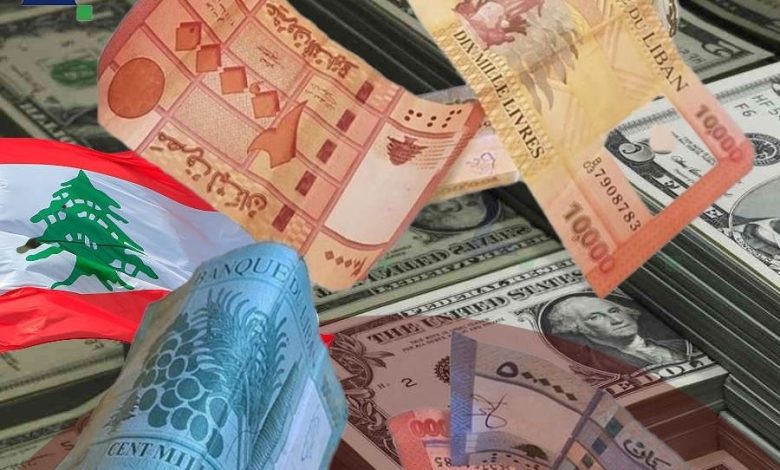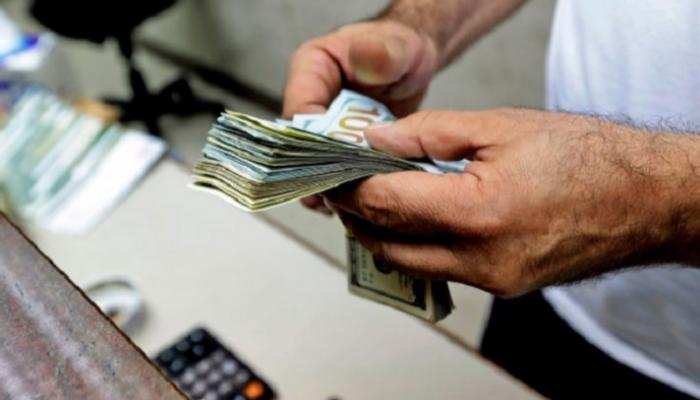وحدة المسار والمصير بين الليرتين اللبنانية والسورية: حقيقة غائبة!
أوضح الباحث والخبير الاقتصادي محمود جباعي في تصريح خاص لـ”نداء الوطن” أن العلاقة بين انهيار الليرة السورية وتدهور الليرة اللبنانية لم تعد كما كانت في الماضي. وأشار إلى أن هذه العلاقة، التي طالما استُغلت لتبرير المضاربات المالية، أصبحت أقل تأثيرًا بسبب الظروف الاقتصادية المختلفة التي يمر بها البلدان.
فصل التأثير بين الليرتين
أكد جباعي أن هناك مبالغة في الترويج لفكرة أن تدهور الليرة اللبنانية مرتبط بانهيار الليرة السورية، مشيرًا إلى أن هذا الادعاء لا يعكس الواقع. وقال إن “الوضع الاقتصادي الحالي يختلف عن السنوات الماضية”، حيث تعرضت الليرة السورية لانهيار مستمر على مدى أكثر من عامين، بينما استطاعت الليرة اللبنانية تحقيق استقرار نسبي خلال العام ونصف الماضيين بفضل التدابير النقدية التي اتخذها مصرف لبنان.
أسباب انهيار الليرة السورية
أوضح جباعي أن انهيار الليرة السورية يعود لأسباب اقتصادية بحتة، من أبرزها العقوبات الدولية المفروضة على سوريا، وعلى رأسها “قانون قيصر”، بالإضافة إلى الانخفاض الحاد في التحويلات المالية نتيجة الرقابة الصارمة المفروضة على البلاد.
وأضاف: “إن تحسين الأوضاع السياسية ورفع العقوبات الاقتصادية، بما في ذلك إلغاء قانون قيصر، قد يساهم بشكل مباشر في دعم قيمة الليرة السورية واستقرارها”.
تأثير الاستقرار السوري على لبنان
أشار جباعي إلى أن استقرار سوريا سياسيًا واقتصاديًا سيكون له انعكاس إيجابي على الاقتصاد اللبناني، حيث أن البلدين تربطهما علاقات اقتصادية وثيقة. وأكد أن سوريا كانت تمتلك دائمًا قدرة أكبر على تحقيق الاكتفاء الذاتي في قطاعات حيوية مثل الزراعة والصناعة، ما جعل اقتصادها أكثر قوة واستقلالية مقارنة بلبنان.
كما استشهد بالترابط الوثيق بين الاقتصاد السوري والمؤشرات السياسية، مشيرًا إلى أن قيمة الليرة السورية شهدت انخفاضًا حادًا بالتزامن مع تغييرات سياسية في النظام. وأكد أن أي إصلاحات سياسية واقتصادية قد تؤدي إلى تعزيز قيمة الليرة السورية بشكل كبير، مما سينعكس إيجابًا على المنطقة ككل، وخاصة لبنان.
الإصلاحات كحل مستدام
يرى جباعي أن الإصلاحات السياسية والاقتصادية تمثل الحل الأساسي لتحسين الأوضاع النقدية في سوريا. وأضاف أن تحقيق هذه الإصلاحات سيسهم في استقرار سعر الصرف وتعافي الاقتصاد، مما سيؤدي إلى تحسين قيمة الليرة السورية بشكل ملحوظ.
واختتم جباعي حديثه بالتأكيد على أن استقرار سوريا وعودة نشاطها الاقتصادي سيوفر للبنان فرصة للاستفادة من العلاقات الاقتصادية المشتركة، خاصة في ظل الوضع الصعب الذي يعانيه الاقتصاد اللبناني حاليًا.
The Interconnected Path of the Lebanese and Syrian Currencies: A Hidden Reality!
Economic researcher and expert Mahmoud Jibai clarified in an exclusive statement to “Nidaa Al-Watan” that the correlation between the collapse of the Syrian pound and the decline of the Lebanese lira is no longer as significant as it once was. He highlighted how the long-standing claim of interdependence between the two currencies has been overstated in recent times, given the differing economic conditions in both countries.
Decoupling the Link Between the Two Currencies
Jibai emphasized that the notion that the devaluation of the Lebanese lira is directly tied to the collapse of the Syrian pound is exaggerated. “The current economic situation differs greatly from previous years,” he said. While the Syrian pound has been in freefall for over two years, the Lebanese lira has achieved relative stability over the past year and seven months, thanks to monetary measures implemented by Lebanon’s Central Bank.
Root Causes of the Syrian Pound’s Collapse
Jibai identified economic sanctions, including the Caesar Act, as one of the main reasons for the Syrian pound's depreciation. He also cited a drastic drop in remittances due to the strict monitoring of financial transfers into the country.
He explained that improving the political situation and lifting sanctions, particularly the Caesar Act, could significantly help stabilize and improve the value of the Syrian pound.
Syria's Stability and Its Impact on Lebanon
Jibai highlighted that political and economic stability in Syria would positively impact Lebanon, given the deep economic ties between the two countries. He noted that Syria has traditionally been stronger economically than Lebanon due to its self-sufficiency in key sectors like agriculture and industry.
He also pointed out the direct link between Syria’s economy and its political landscape, noting that the Syrian pound depreciated sharply during political turmoil. He emphasized that any political and economic reforms in Syria could lead to a substantial improvement in the currency's value, benefiting the entire region, especially Lebanon.
Reforms as the Sustainable Solution
Jibai stressed that implementing political and economic reforms is essential for addressing Syria’s economic crisis. Such reforms, he explained, would stabilize the exchange rate and lead to a recovery of the economy, ultimately strengthening the value of the Syrian pound.
In conclusion, Jibai asserted that Syria’s economic recovery would offer Lebanon significant opportunities to revive its economy through trade and cooperation, especially during Lebanon’s ongoing financial challenges.
Translated by international scopes team
المصدر: نداء الوطن
 سكوبات عالمية إقتصادية – EconomyScopes إجعل موقعنا خيارك ومصدرك الأنسب للأخبار الإقتصادية المحلية والعربية والعالمية على أنواعها بالإضافة الى نشر مجموعة لا بأس بها من فرص العمل في لبنان والشرق الأوسط والعالم
سكوبات عالمية إقتصادية – EconomyScopes إجعل موقعنا خيارك ومصدرك الأنسب للأخبار الإقتصادية المحلية والعربية والعالمية على أنواعها بالإضافة الى نشر مجموعة لا بأس بها من فرص العمل في لبنان والشرق الأوسط والعالم




